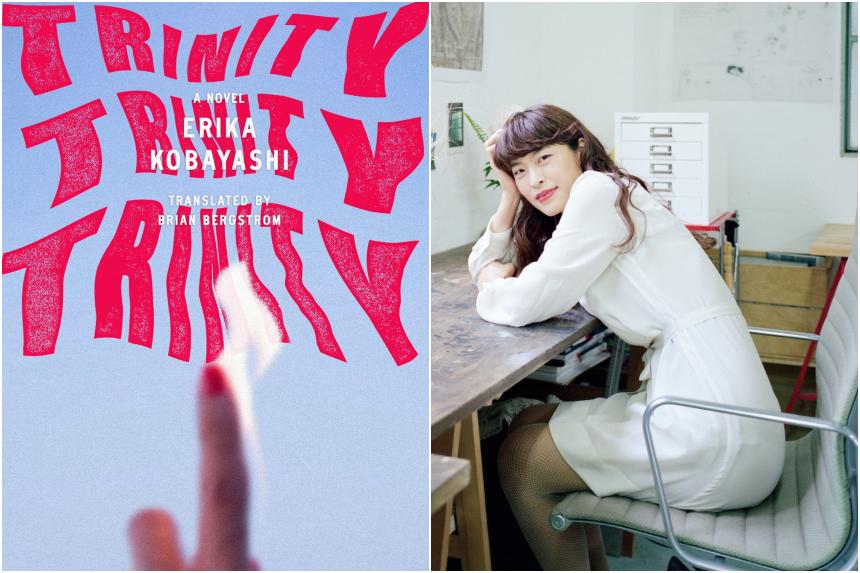Trinity, Trinity, Trinity
By Erika Kobayashi, translated by Brian Bergstrom
Fiction/Astra House/Paperback/240 pages/$23.96/Amazon SG (amzn.to/44VnTxj)
3 stars
Set nine years after the 2011 Fukushima nuclear power plant disaster, and in the run-up to the 2020 Tokyo Olympics, Erika Kobayashi’s Trinity, Trinity, Trinity is a truly surreal dive into nuclear anxieties amid a moment of national pride.
As the Olympic torch relay progresses in the novel, Japan’s inhabitants appear traumatised: A man is caught on television throwing 10,000 yen bills containing radioactive material, and seemingly everyone is holding a Geiger counter, used for detecting radiation.
Elderly people, especially, have been seen clutching mysterious dark stones in the palm: “The old people would put the accursed stones to their ears, listening intently as if to a voice coming from within them. And then they would start talking nonstop about radiation.”
The novel focuses on one woman’s narration of the day’s events – her mother had just been hospitalised and her daughter, with earbuds in all day, seems increasingly distant.
All this time, the narrator is having cybersex on a mobile application named Trinity.
Trinity, of course, refers to many other things.
Historically, it is the code name given to the first detonation of a nuclear weapon.
In Kobayashi’s novel, the elderly Japanese possessed by the accursed rocks have also been stigmatised as Trinities.
The condition, which the narrator worries her mother might be suffering from, manifests as such: “They become attracted to materials with high levels of radioactivity, and they are driven to try to collect them. They begin to suffer from aural hallucinations, and eventually descend into a state of delirium, prone to erratic speech and behaviour.”
The novel contains imaginative, macabre world-building – bold in its experiments, even – while it suffers from directionlessness.
The book never quite fleshes out the key mysteries set up in this parallel Japan, and the three main characters seem more like shells of themselves than fully developed protagonists.
Much of the novel’s disparate threads – nuclear anxieties from the mid-20th century to today, the history of the Olympics, and an undercurrent of stigma against the elderly population – remain discrete and never quite come together even in the novel’s final moments.
Still, however flawed, the arrival of Trinity, Trinity, Trinity in English through Brian Bergstrom’s translation will resonate with the current zeitgeist and its unease about tipping over a dangerous red line in mankind’s history.
Kobayashi’s novel speaks to regional anxieties over the recent release of treated wastewater from Fukushima into the sea, and even films around the history of nuclear weapons such as Christopher Nolan’s Oppenheimer (2023) and Wes Anderson’s Asteroid City (2023).
Trinity, Trinity, Trinity taps the emotional consequences of nuclear histories in Japan and renders these feelings in all its inexplicable, often illegible messiness.
If you like this, read: Chernobyl Prayer by Svetlana Alexievich, translated by Anna Gunin and Arch Tait (Penguin, 2016, $14.33, Amazon SG, go to amzn.to/46j8pEf). An oral history of the people who witnessed the Chernobyl nuclear reactor explosion, this work by the Nobel Prize laureate, which reaches the emotional core of the disaster, was first published in 1997.

